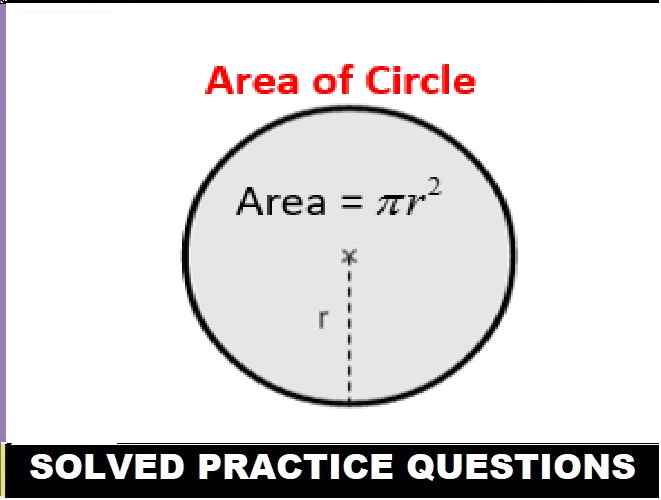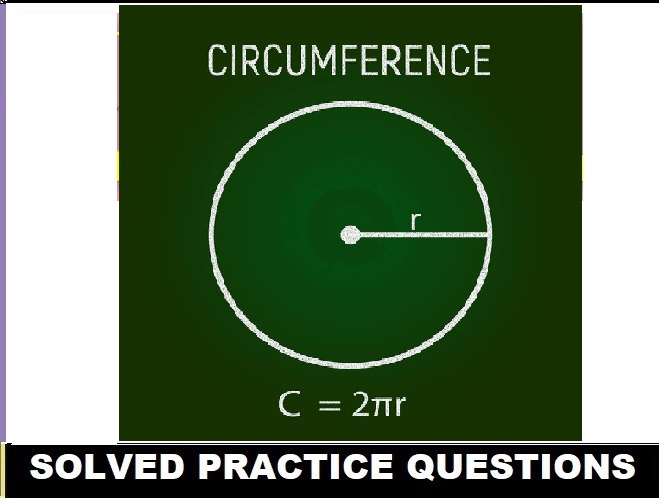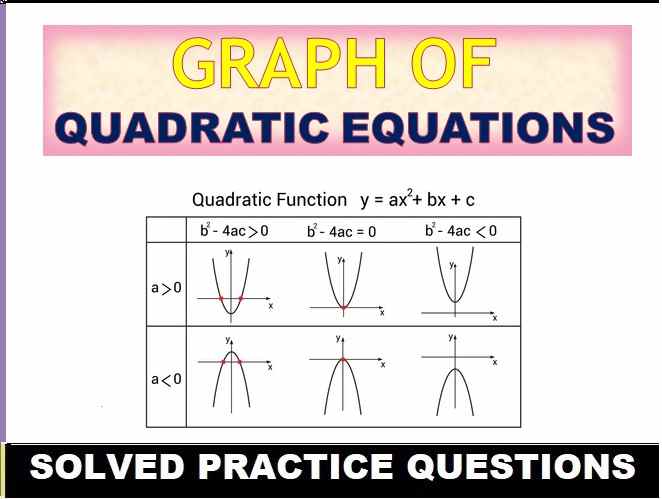Shares and Dividends Exe-3C Concise Class-10 ICSE Mathematics Selina Solution Ch-3. We Provide Step by Step Solutions / Answer of questions of Selina Concise Maths . Visit official Website CISCE for detail information about ICSE Board Class-10 Mathematics.

Shares and Dividends Exe-3C Concise Class-10 ICSE Mathematics Selina Solution Ch-3
| Board | ICSE |
| Publications | Selina |
| Subject | Maths |
| Class | 10th |
| Chapter-3 | Shares and Dividends |
| Writer | R.K. Bansal |
| Exe-3C | Solved Extra Questions on Shares and Dividends |
| Edition | 2025-2026 |
Exe-3C Solved Extra Questions
Shares and Dividends Exe-3C Concise Class-10 ICSE Mathematics Selina Solution Ch-3
Que-1: By investing Rs.45,000 in 10% Rs.100 shares, Sharad gets Rs.3,000 as dividend. Find the market value of each share.
Ans: Annual income from 1 share = 10% of Rs 100 = Rs 10
Total annual income = Rs 3000
∴ Number of shares bought = Total annual income / Annual income from 1 share
=> 3000/10 = 300
Market value of one share = Total Investment / Number of shares
=> 45000/300 = Rs 150
Que-2: Mrs. Kulkarni invests Rs.1, 31,040 in buying Rs.100 shares at a discount of 9%. She sells shares worth Rs.72,000 at a premium of 10% and the rest at a discount of 5%. Find her total gain or loss on the whole.
Ans: Investment = Rs. 1,31,040
N.V of 1 share = Rs. 100
Discount = 9% of Rs. 100 = Rs. 9
∴ M.V of 1 share = Rs. 100 – Rs. 9 = Rs. 91
∴ Number of shares purchased = Investment / M.V of 1 share = 131040 / 91 = 1440
∴ Number of shares worth Rs. 72,000 = 72000/100 = 720
∴ Mrs. Kulkarni sells 720 shares at a premium of 10%
M.V of 1 share = Rs. 100 + Rs. 10 = Rs. 110
∴ Selling price of 720 shares = 720 × Rs. 110 = Rs. 79,200
Number of remaining shares = 1440 – 720 = 720
She sells 720 shares at a discount of 5%
M.V of 1 share = Rs. 100 – Rs. 5 = Rs. 95
∴ Selling price of 720 shares = 720 × Rs. 95 = Rs. 68,400
∴ Total selling price = Rs. (79,200 + 68,400) = Rs. 1,47,600
∴ Total gain = Total selling price – Total investment
= Rs. (1,47,600 – 1,31,040)
= Rs. 16,560
Que-3: A man invests a certain sum on buying 15% Rs.100 shares at 20% premium. Find : (i) His income from one share (ii) The number of shares bought to have an income, from the dividend, Rs.6480 (iii) Sum invested
Ans: (i). The dividend on one share = 15% of Rs. 100
= Rs. (15/100×100)
= Rs. 15
So, the income from one share is Rs. 15.
(ii). Number of shares bought by the man
= Annual income / Dividend on one share = 6480/15 = Rs. 432
(iii). Since the man bought shares of Rs. 100 at 20% premium, the market value of one share
= Rs. (1+20/100)×100
= Rs. (120/100×100)
= Rs. 120
∴ His total investment = Number of shares × Market value of one share
= 432 × 120
= Rs. 51,840
Que-:4 Gagan invested Rs.80% of his savings in 10% Rs.100 shares at 20% premium and the rest of his savings in 20% Rs.50 shares at Rs.20% discount. If his incomes from these shares is Rs.5,600 calculate: (i) His investment in shares on the whole (ii) The number of shares of first kind that he bought (iii) Percentage return, on the shares bought on the whole.
Ans: (i). Let the total savings be Rs. x.
For 1st part:
N.V of each share = Rs. 100
M.V of each share = 100+20/100(100) = Rs. 120
Number of shares bought = 0.8x/120 …(Investment = Rs. x)
Dividend on each share = 10% of 100 = Rs. 10 …(Rate = 10%)
Total dividend = 10 × 0.8x/120=Rs.0.8x/12
For 2nd part:
N.V of each share = Rs. 50
M.V of each share = 50-20/100(50) = Rs. 40
Number of shares bought = 0.2x/40 …(Investment = Rs. x)
Dividend on each share = 20% of 50 = Rs. 10 …(Rate = 20%)
Total dividend = 10×0.2x/40=0.2x/4
Given that dividends (incomes) from both investments are Rs. 5,600
=> 0.8x/12+0.2x/4=5600
=> 0.8x+0.6x/12=5600
=> x=5600×12/1.4
=> x = 48,000
Thus, his investment in shares on the whole is Rs. 48,000
ii. So, number of shares bought
= 0.8x/120
= 0.8×48000/120
= Rs. 320
iii. The total dividend (return)
= 0.8x/12+0.2x/4
= 0.8(48000)/12+0.2(48000)/4
= 0.8 × 4000 + 0.2 × 12000
= Rs. 5,600
Percentage return = 5600/48000×100
= 11(2/3)%
Que-5: Ashwarya bought 496, Rs.100 shares at Rs.132 each, find : (i) Investment made by her (ii) Income of Ashwarya from these shares, if the rate of dividend is 7.5%. (iii) How much extra must ashwarya invest in order to increase her income by Rs.7,200
Ans: (i). N.V of each share = Rs. 100
M.V of each share = Rs. 132
Investment made by her = 496 × 132 = Rs. 65,472
ii. Dividend on 1 share = 7.5% of Rs. 100 = Rs. 7.5
So, income of Aishwarya from these shares = 496 × 7.5 = Rs. 3,720
iii. If she wants to increase her income by Rs. 7,200
The number of shares she should buy = Increase in the income / Income of one share
= 7200/7.5
= Rs. 960
So, she should invest = 960 × 132 = Rs. 1,26,720
Que-6: Gopal has some Rs.100 shares of company A, paying 10% dividend. He sells a certain number of these shares at a discount of 20% and invests the proceeds in Rs.100 shares at Rs.60 of company B paying 20% dividend. If his income, from the shares sold, increases by Rs.18,000, find the number of shares sold by Gopal.
Ans: Let the number of share the man sold be x.
N.V of share = Rs. 100
Rate of dividend = 10%
Dividend on each share = 10% of Rs. 100 = Rs. 10
So, the dividend on x shares = Rs. 10 × x = Rs. 10x
Selling price of each share = Rs. 100 – 20% of Rs. 100 = Rs. 80
Amount obtained on selling x shares = Rs. 80 × x = Rs. 80x
The proceeds he invest in Rs. 100 shares at Rs. 60 of company B paying 20% dividend
N.V of share = Rs. 100
M.V of each share = Rs. 60
Number of shares bought by the man = Amount invested / M.V of each share
= 80x/60
= 4x/3
Dividend on each share = 20% of Rs. 100 = Rs. 20
Total dividend recieved = Dividend on each share × Number of shares
= 20 × 4x/3
= 80x/3
Increase in the income = Rs. 18,000
=> 80×3-10x=18000
=> 50x/3=18000
x = Rs. 1080
Hence, the number of shares sold by Gopal is Rs. 1080.
Que-7: A man invests a certain sum of money in 6% hundred-rupee shares at Rs.12 premium. When the shares fell to Rs.96, he sold out all the shares bought and invested the proceed in 10%, ten-rupee shares at Rs.8. If the change in his income is Rs.540, Find the sum invested originally
Ans:
Let the original sum invested = x
The number of Rs. 100 shares purchased at premium of Rs. 12
= x/100+12
= x/112
The income per original share at 6% = Rs. 6
Total Income = (Number of shares) × (Earning per share)
= (Number of shares) × 6
= x/112×6
= 3x/56
Proceeds from sale of original share at Rs. 96 per share
= (Number of shares) × 96
= x112×96
= 6x/7
Number of Rs. 10 shares purchased at Rs. 8 per share from proceeds of original shares
= Proceeds from sale of original shares/8
= (6x/7)/8
= 3x/28
Income per new share Rs. 10 at 10%
= 10/100×10
= Rs. 1
Total income from new shares
= (Number of shares) × (Income per share)
= 3x/28×1
= 3x/28
Given change in income = 540
Income from old shares – Income from new shares = 540
∴ 540=3x/28-3x/56=3x/56
∴ x = (540/3)/56 = 10,080
Thus, the original sum invested is Rs. 10,080.
Que-8: Mr. Gupta has a choice to invest in ten-rupee shares of two firms at Rs13 or at Rs16. If the first firm pays 5% dividend and the second firm pays 6% dividend per annum, find:(i)which firm is paying better.(ii)if Mr. Gupta invests equally in both the firms and the difference between the returns from them is Rs30, find how much, in all, does he invest.
Ans: (i) 1st firm
Nominal value of 1 share= Rs10
Market value of 1 share= Rs13
Dividend%= 5%
so Dividend = 5% of Rs10= Rs0.50
∴ Income% = Income/Investment ×100%
= 0.50/13×100%
= 3.846%
2nd firm:
Nominal value of 1 share= Rs10
Market value of 1 share= Rs16
Dividend%= 6%
hence Dividend = 6% of Rs10= Rs0.60
∴ Income% = Income/Investment ×100%
= 0.60/16 ×100%
= 3.75%
Then first firm is paying better than second firm.
(ii) Let money invested in each firm= Rs y
1st firm :
∴ No of shares purchased = y/13shares
Total dividend = Rs.0.50×y/13=Rs.y/26
2nd firm:
∴ No of shares purchased = y/16 shares
Total dividend = Rs.0.60×y/16=Rs.3y/80
Given difference of both dividend= Rs30
=> y/26-3y/80=Rs.30
=> y/1040=Rs.30
=> y = Rs. 30 × 1040 = Rs. 31,200
Total money invested in both firms = Rs. 31,200 × 2 = Rs. 62,400
Que-9: Ashok invested Rs.26,400 in 12%, Rs.25 shares of a company. If he receives a dividend of Rs.2,475, find the:(i) number of shares he bought.(ii) market value of each share.
Ans: (i). Total dividend = Rs. 2,475
And dividend on each share = 12% of Rs. 25
= 12/100×Rs.25 = Rs. 3
∴ Number of shares bought = Total dividend/Dividend on 1 share
= 2475/3 = 825
(ii). Market value of 825 shares = Rs. 26,400
∴ Market value of each share
= Total investment/No. of shares = 26400/825 = Rs. 32
Que-10: A man invested Rs45,000 in 15% Rs100shares quoted at Rs125. When the market value of these shares rose to Rs140, he sold some shares, just enough to raise Rs8,400. Calculate: (i)the number of shares he still holds; (ii)the dividend due to him on these remaining shares.
Ans: (i) Total investment= Rs45,000
Market value of 1 share= Rs125
∴ No of shares purchased = 45000/125 = 360 shares
Nominal value of 360 shares= Rs100 x 360= Rs36,000
Let no. of shares sold= n
Then sale price of 1 share= Rs140
Total sale price of n shares= Rs8,400
Then n = 8400/140 = 60 shares
The no. of shares he still holds= 360 – 60= 300
(ii) Nominal value of 300 shares= Rs100 300= Rs30,000
Dividend%= 15%
Dividend = 15% of Rs30,000
= 15/100×30000 = Rs. 4,500
Que-11: Mr.Tiwari. invested Rs29,040 in 15% Rs100 shares quoted at a premium of 20%. Calculate: (i)the number of shares bought by Mr. Tiwari. (ii)Mr. Tiwari’s income from the investment. (iii)the percentage return on his investment.
Ans: Total investment= Rs29,040
Nominal value of 1 share= Rs100
Market value of 1 share= Rs100+ 20% of Rs100
= Rs100 + Rs20=Rs120
∴ No of shares purchased = 29040/120 = 242 shares
Nominal value of 242 shares= Rs100 x 242= Rs24,200
Dividend%= 15%
Dividend= 15% of Rs24,200
= 15/100×24200
= Rs. 3,630
Income% = Income/Investment ×100%
= 3630/29040×100%
= 12.5%
Que-12: A dividend of 12% was declared on Rs150 shares selling at a certain price. If the rate of return is 10%, calculate: (i)the market value of the shares. (ii)the amount to be invested to obtain an annual dividend of Rs1,350.
Ans: (i) Nominal value of 1 share= Rs150
Dividend%= 12%
Dividend on I share= 12% of Rs150
=> 12/100 x 150 = Rs 18
Let market value of 1 share= Rs y
Return%= 10%
10% of Rs. (y) = Rs. 18
=> 10/100×y=Rs.18
=> y = Rs. 180
(ii)when dividend is Rs18, then investment is Rs180
When dividend is Rs1,350, then investment
= 180/18×Rs.1350
= Rs. 13,500
Que-13: Divide Rs50,760 into two parts such that if one part is invested in 8% Rs100 shares at 8% discount and the other in 9% Rs100 shares at 8% premium, the annual incomes from both the investments are equal.
Ans: Total investment= Rs50,760
Let 1st part= Rs y
2nd part= Rs(50,760-y)
for 1st part
Nominal value of 1 share= Rs100
Market value of 1 share= Rs100 – 8% of Rs100
= Rs100 – Rs8= Rs92
∴ No. shares purchased = y/92 shares
Dividend%= 8%
Dividend on 1 share= 8% of Rs100= Rs8
Total dividend = y/92×Rs.8=Rs.2y/23
For 2nd part:
Nominal value of 1 share= Rs100
Market value of 1 share= Rs100 + 8% of Rs100
= Rs100 + Rs8
= Rs. 108
∴ No of shares purchased = 50760-y/108 shares
Dividend% = 9%
Dividend on 1 share= 9% of Rs100= Rs9
Total dividend = 50760-y/108×Rs.9
= Rs.9(50760-y)/108
Given that both dividend are equal
Then Rs.2y/23=Rs.9(50760-y)/108
=> 2y×108 =23(456840-9y)
=> 216y =456840×23-207y
=> 423y=456840×23
=> y=456840×23/423=Rs.24,840
1st part = Rs. 24,840
2nd part = Rs. 50,760 – Rs. 24,840 = Rs. 25,920
Que-14: Mr. Shameem invested of his savings in 20% Rs50 shares quoted at Rs60 and the remainder of the savings in 10% Rs100 share quoted at Rs110. If his total income from these investments is Rs9,200; find : (i)his total savings (ii)the number of Rs50 share (iii)the number of Rs100 share.
Ans: Let his total savings is Rs y
1st case:
His saving = 33(1/3)% of y=Rs.y3
The market price of 1 share = Rs. 60
Then shares purchased = y/3×60=y/180
Dividend on 1 share = 20% of Rs. 50 = Rs. 10
Total dividend = y/180×10=Rs.y/18
2nd case:
His saving = 66(2/3)% of y=Rs.2y/3
Market price of 1 share = Rs. 110
Then shares purchased = 2y/3×110=y/165
Dividend on 1 share = 10% of Rs. 100 = Rs. 10
Total dividend = y/165×10=Rs.2y/33
According to question
Total income = Rs. 9200
=> y/18+2y/33=Rs.9200
=> 23y/198=Rs.9200
=> y=9200×19823=Rs.79200
The number of Rs. 50 share = 79200/180 = 440
The number of Rs. 100 share = 79200/165 = 480
Que-15: Vivek invests Rs4,500 in 8%, Rs10 shares at Rs15. He sells the shares when the price rises to Rs30, and invests the proceeds in 12% Rs100 shares at Rs125. Calculate : (i)the sale proceeds (ii)the number of Rs125 shares he buys. (iii)the change in his annual income from dividend.
Ans: (1). Total investment = Rs. 4,500
Market value of 1 share = Rs. 15
∴ No of shares purchased = 4500/15 = 300 shares
Nominal value of 1 share = Rs. 10
Nominal value of 300 shares = Rs. 10 × 300 = Rs. 3,000
Dividend = 8% of Rs. 3,000
= 8/100×3000 = Rs. 240
Sale price of 1 share = Rs. 30
Total sale price = Rs. 30 × 300 = Rs. 9,000
(2). New market price of 1 share = Rs. 125
∴ No of shares purchased = 9000/125 = 72 shares
(3). New nominal value of 1 share = Rs. 100
New nominal value of 72 shares = Rs. 100 × 72 = Rs. 7,200
Dividend% = 12%
New dividend = 12% of Rs. 7,200
= 12/100×Rs.7200 = Rs. 864
Change in annual income = Rs. 864 – Rs. 240 = Rs. 624
Que-16: Mr.Parekh invested Rs.52,000 on Rs.100 shares at a discount of Rs.20 paying 8% dividend. At the end of one year he sells the shares at a premium of Rs.20. Find: (i)The annual dividend (ii)The profit earned including his dividend.
Ans: Rate of dividend = 8%
Amount invested = Rs. 52,000
Market price = Rs. 100 – Rs. 20 = Rs. 80
Number of shares purchased = Rs. 52000/80 = 650
(1). Annual dividend = 650 × 8 = Rs. 5,200
(2). On selling market rate = Rs. 100 + 20 = Rs. 120
=> Sale price = Rs. 120 × 650 = Rs. 78,000
Profit = Rs. (78,000 – 52,000) = Rs. 26,000
=> Total gain = 26,000 + 5,200 = Rs. 31,200
Que-17: Salman buys 50 shares of face value Rs.100 available at Rs.132. (i) What is his investment? (ii) If the dividend is 7.5%, what will be his annual income? (iii) If he wants to increase his annual income by Rs.150, how many extra shares should he buy?
Ans: Number of shares bought = 50
N,V of one share = Rs, 100
M.V of each share = Rs 132
(i) Investment = M.V of each share x Number of shares = Rs 132 x 50 = Rs 6600
(ii) Since dividend on 1 share = 7.5% of N.V = 7.5/100 x 100 = Rs 7.50
His annual income = Rs 7.50 x 50 = Rs 375
(iii) Extra shares to be bought = Increase in annual income/Income in one share
=150/7.50 = 20
Que-18: Salman invests a sum of money in Rs.50 shares, paying 15% dividend quoted at 20% premium. If his annual dividend is Rs.600, calculate : (i) The number of shares he bought. (ii) His total investment. (iii) The rate of return on his investment.
Ans: N.V of each share = Rs. 50
M.V of each share = Rs. 50 + 20% of Rs. 50
= 50+20/100×50 = 50 + 10 = Rs. 60
Dividend on one share = 15% of Rs. 50
= 15/100×50 = 7.5
(i). Number of shares bought = Total dividend/Dividend on one share
= 600/7.5 = 80
(ii). His total investment = Number of shares × M.V of one share
= 80 × Rs. 60 = Rs. 4800
(iii). Rate of return = Total dividend/Total investment ×100
= 600/4800×100 = 12.5%
Que-19: Rohit invested Rs. 9,600 on Rs. 100 shares at Rs. 20 premium paying 8% dividend. Rohit sold the shares when the price rose to Rs. 160. He invested the proceeds (excluding dividend) in 10% Rs. 50 shares at Rs. 40. Find the : (i) Original number of shares.(ii) Sale proceeds. (iii) New number of shares. (iv) Change in the two dividends.
Ans: (i). 100 shares at Rs. 20 premium means
Nominal value of the share is Rs. 100
And its market value = 100 + 20 = Rs. 120
Number of shares = Money Invested/Market value of 1 share
= 9600/120 = 80
(ii). Each share is sold at Rs. 160
∴ Sale proceeds = 80 × Rs. 160 = Rs. 12,800
(iii). Now, investment = Rs. 12,800
Dividend = 10%
Net value = 50
Market value = Rs. 40
∴ Number of shares = Investment/Market value
= 12800/40 = 320
(iv). Now, dividend on 1 share = 10% of N.V = 10% of 50 = 5
=> Dividend on 320 shares = 320 × 5 = 1600
Thus, change in two dividends = 1600 – 640 = 960
Que-20: How much should a man invest in Rs. 50 shares selling at Rs. 60 to obtain an income of Rs. 450, if the rate of dividend declared is 10%. Also find his yield percent, to the nearest whole number.
Ans: Face value of each share = Rs. 50
Dividend(%) = 10%
Dividend on 1 share = 10/100×50 = Rs .5
∴ Number of shares bought = Total dividend/Dividend per share
= 450/5 = 90
Market value of each share = Rs. 60
∴ Total investment = 90 × 60 = Rs. 5400
Percentage return = Total dividend/Total investment ×100
= 450/5400×100 = 8.33% = 8%
— : End of Shares and Dividends Exe-3C Concise Class-10 ICSE Mathematics Selina Solution Ch-3 :–
Return to :-Selina Concise Solutions for ICSE Class-10 Maths
Thanks
Please Share with Your Friends


